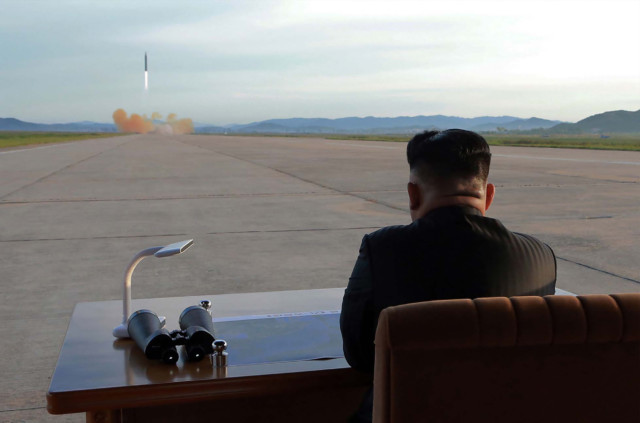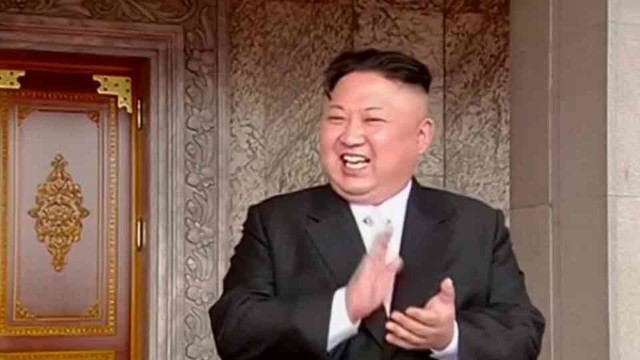At this week’s high-level United Nations General Assembly debates, the nuclear threat from the Democratic People’s Republic of Korea looms large.
Pyongyang’s nuclear and ballistic missile ambitions, along with its most recent tests, have prompted multiple rounds of U.N. sanctions over the past decade, with limited impact. But what are these sanctions, and why have they repeatedly failed?
CGTN’s U.N. correspondent Liling Tan reports.
On September 3rd, the Democratic People’s Republic of Korea conducted its sixth and most powerful nuclear test, claiming to have detonated a hydrogen bomb. Twelve days later, the DPRK fired a ballistic missile over Japan, the second this year.
“The nuclear and missile tests by the DPRK have created great instability and tension on the Korean peninsula, throughout the region and beyond,” U.N. Secretary General Antonio Guterres said in response.
Since its first nuclear test in 2006, Pyongyang has violated eight rounds of sanctions imposed by the UN. The measures targeted materials for nuclear and ballistic programs, heavy weapons, military vehicles, financial transactions, and even seafood and luxury goods.
The DPRK is known to have conducted six nuclear tests since October 2006, with the James Martin Center for Nonproliferation Studies estimates that Pyongyang tested 93 missiles during the same period. This year, about 20 missiles were fired.
So why haven’t the U.N. Security Council sanctions worked?
Experts said one reason is that the countries that trade with the DPRK have not done enough to stop sanctioned exports. The other reason is simply because the measures weren’t strong enough.
“If you rank sanctions against Iran, Cuba, Myanmar and North Korea, historically the sanctions against North Korea have been the weakest,” according to Thomas Byrne, president of The Korea Society.

This undated picture released from North Korea’s official Korean Central News Agency (KCNA) on September 16, 2017 shows North Korean leader Kim Jong-Un inspecting a launching drill of the medium-and-long range strategic ballistic rocket Hwasong-12 at an undisclosed location. (AFP PHOTO / KCNA VIA KNS)
China and Russia have resisted previous calls for tougher sanctions, saying they favor a more diplomatic approach. But as missile and nuclear tests piled up, rare unity emerged within the Security Council.
“So now what you have, actually since resolution 2270 that was passed in March 2016, you had the beginning of a serious sanctions regime,” Byrne said.
In February, China suspended coal imports from the DPRK. Later in August and September, following the latest nuclear and ballistic missile tests, the Security Council went even further.
“Oil is the life-blood of North Korea’s effort to build and deliver a nuclear weapon,” U.S. Ambassador to the U.N. Nikki Haley said on Sept. 11. “Today’s resolution reduces almost 30 percent of oil provided to North Korea by cutting off over 55 percent of its gas, diesel, and heavy fuel oil.”
The ambassador said the latest sanctions aim to slash $1.3 billion from the DPRK’s annual trade revenues, which is more than a third of the total.
Lisa Collins discusses the latest on tensions between the DPRK and the US
BUNDLE Chile Economy guest Peter Hakim GB60 GUEST VIDEO Peter Hakim discusses Chile’s economy and the challenges facing its future growth https://america.cgtn.com/?p=484352 https://youtu.be/L1FGPPJZKso Ahmad PUBLISHED x x CGTN’s Rachelle Akuffo spoke to Peter Hakim, president emeritus and senior fellow at Inter-American Dialogue. They discussed the challenges facing Chile’s economy and what prospects it has for the foreseeable future.
 CGTN America
CGTN America
